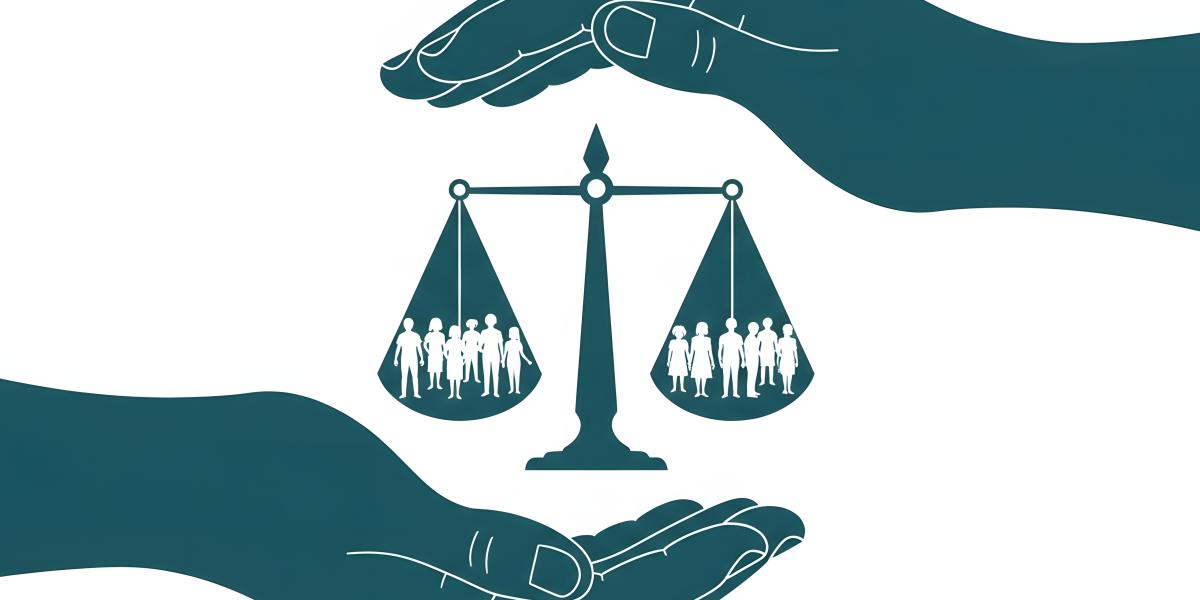Egalitarians sometimes deny that there is any conflict between equality and the doctrines of individual liberty—free speech, contractual freedom, freedom of conscience and belief, freedom of association, and the right to private property. They argue that egalitarian values—expressed in equal protection laws, civil rights, and the anti-discrimination principle—complement individual liberty by ensuring individual liberty “for all equally.” For example, the Bill of Rights Institute explains that America was founded on the vision of liberty and equality for all, and not for any particular race:
The promise of America in the vision of the Founders was that of liberty and equality in the Declaration of Independence and Constitution. The natural rights republic [sic] new concept was grounded upon principles that did not change with the passing of time or the changes in culture. This novus ordo seclorum—“new order for the ages”—was not created for a particular race, privileged aristocratic social class, or member of an established religion, but for all equally.
As they see it, liberty and equality are mutually compatible. But it is clear, from cases pitting free speech against equal protection under the civil rights regime, that this is not true. Many examples could be given of cases involving religious beliefs that violate the anti-discrimination principle, but this article will focus on the example of the conflict between equal protection and free speech.
The egalitarian argument is that special measures are needed to extend the equal protection of the law to vulnerable groups who suffer disproportionately from “hate” due to their race, religion, or sex, the argument being that if they are not specially protected from such “hate” they will not benefit from the equal protection available to those who are not subject to the same vulnerability. This is where they situate the appropriate limits of free speech—they argue that any speech which amounts to “hate” against protected groups prevents those groups from enjoying the equal protection of the law. Understood in that way, free speech is clearly not compatible with equal protection. One or the other must yield. Further, there is no precise definition of the threat to equal protection, as “hate” depends in large part on the subjective perception of the victim and also on the “implications” that may be deduced by “hate experts.” For example, a recent UK report from the University of Leicester’s Centre for Hate Studies describes “rural racism” in the English countryside as ethnic minorities feeling unwelcome:
In it, academics claim that ethnic minority communities face “challenges” in the countryside because rural England is “overwhelmingly white.”
This creates a feeling of “discomfort,” the report states, and the “psychological burden” that comes with navigating predominantly white spaces.
The report also raises concerns that traditional pub culture and other “monocultural customs” are exclusionary.
In this context, laws protecting people from “hate” are vague, compounding their corrosive effect on free speech. Speech that seems innocuous becomes “hate” if someone is offended and, if the victim claims to feel distressed or “unsafe,” that magnifies the degree of hate. In their book Beyond All Reason: The Radical Assault on Truth in American Law, Daniel Farber and Suzanna Sherry argue that a concept or ideology could have “inherently anti-Semitic and racist implications” even if the speakers do not “necessarily have anti-Semitic or racist feelings themselves.” They add that if a theory is perceived as racist or sexist, then “they would attach these labels regardless of whether the holders of the theories had any personal anger toward blacks or women.”
The test is not the speaker’s intention, but the “implications” of their speech, and the impact on the victim is the key standpoint in identifying those implications. Various statutes in the UK prohibit hate speech based on that interpretation, such as the Communications Act under which people are frequently arrested for writing offensive posts on social media. Recently a comedian was arrested for posting that men who invade women’s private spaces should be punched in their anatomy, which he later described as a joke. Under UK law, men who identify as women are protected from discrimination, and are therefore treated by the police as a “protected group”:
In his statement on Wednesday, Sir Mark said the decision to arrest [the comedian] “was made within existing legislation – which dictates that a threat to punch someone from a protected group could be an offence.”
The victim who made the police report in this case argued that “free speech was being used as a ‘euphemism for bullying minorities.’” By treating anti-hate laws as necessary for equal protection, egalitarians have turned the equal protection principle on its head—they argue that in order for everyone to enjoy the equal protection of the laws, vulnerable groups require special protection. Vulnerable groups are, in essence, treated more favorably than other groups in order to equalize them with other groups—treat people unequally in order to treat them equally.
In the US, such attempts to prohibit offensive speech to “protect” vulnerable groups are rooted in the Fourteenth Amendment and civil rights laws, where the concept of harassment based on race, sex, or religion often involves offensive words. For example, in Meritor Savings Bank v. Vinson, 477 U.S. 57 (1986)—a case involving allegations of sexual harassment—the Supreme Court held that, “A claim of ‘hostile environment’ sexual harassment is a form of sex discrimination that is actionable under Title VII.” It is then argued that “hate speech” is excluded by the civil rights laws from the constitutional protection of free speech, the argument being that “hate speech” is unlawful if it targets protected groups.
This argument continues to enjoy widespread support among liberals, despite the fact that it has been repeatedly struck down for violating the First Amendment. An example is New York’s “Online Hate Speech Law” which purported to regulate “hateful conduct” online. The law defined hateful conduct as, “The use of a social media network to vilify, humiliate, or incite violence against a group or a class of persons on the basis of race, color, religion, ethnicity, national origin, disability, sex, sexual orientation, gender identity or gender expression.” This law was struck down: “Even regulations that seek to regulate speech ‘that insult[s], or provoke[s] violence, on the basis of race, color, creed, religion, or gender’ have been found to run afoul of the First Amendment because they constitute content and viewpoint-based regulation of protected speech.” The principle of free speech encompasses speech that others might deem offensive speech, whether the offended person is a member of a “protected” group or not.
From a Rothbardian perspective, all rights are property rights. The right to free speech, like all other individual liberties, is an emanation of self-ownership. The boundaries of one’s own right to free speech lie at the point where they encroach on the property rights of another person—for example, nobody can be forced (meaning force in the Rothbardian sense, not the conversational sense) to listen to anyone, nor to provide a platform to promote ideas that, for whatever reason, they do not wish to promote. It also goes without saying that property rights do not include the right to aggress against others—there is no right to punish or attack people because one disagrees with or is offended by their speech, much less a right to have them arrested or jailed. Private property entails the right to exclude, and any property owner is at liberty to exclude any person whose speech he considers offensive or indeed for any other reason he might wish—even at a whim if he is so minded. As Murray Rothbard explains in the Ethics of Liberty,
In short, a person does not have a “right to freedom of speech”; what he does have is the right to hire a hall and address the people who enter the premises…the right to write or publish a pamphlet, and to sell that pamphlet to those who are willing to buy it (or to give it away to those who are willing to accept it)…the right of free contract and transfer which form part of such rights of ownership. There is no extra “right of free speech” or free press beyond the property rights that a person may have in any given case.
The corollary of that is also true, that no one has the right not to feel offended by anything he hears.




























